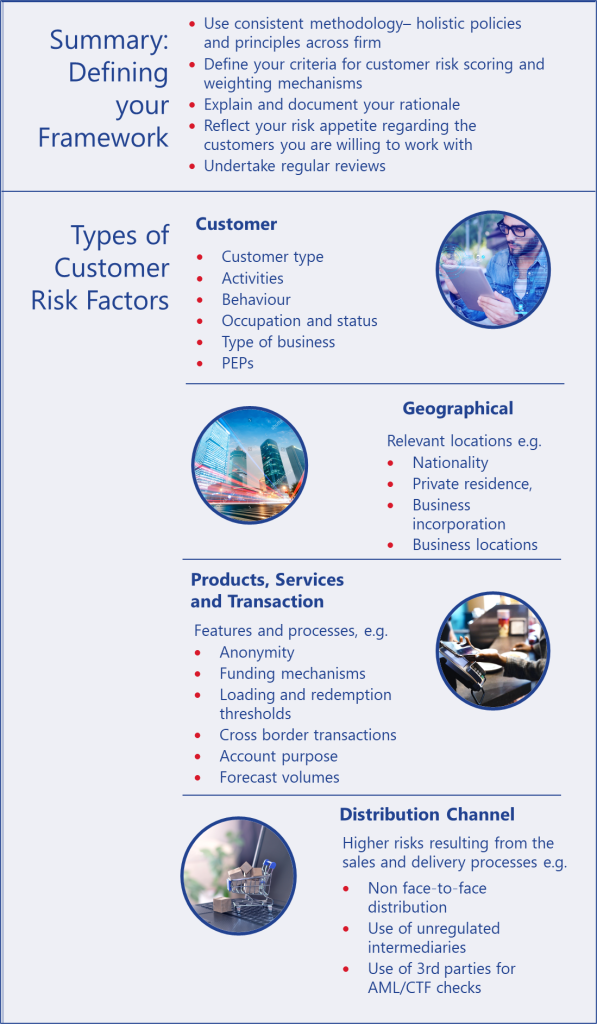Customer Risk Assessments are fundamental to Financial Crime compliance and a priority of the FCA. They help financial institutions identify and assess the risks associated with their customers and ensure that they have appropriate anti-money laundering/counter terrorism financing (AML/CTF) measures in place. Financial institutions, including banks, insurance companies, and investment firms, are required to comply with various laws and regulations designed to prevent financial crimes such as money laundering, terrorist financing, and fraud.
What factors should be included in a Customer Risk Assessment?
A customer risk assessment should consider a number of factors. These include verifying the identity of a customer, the products and services they use, the type of transactions they carry out, and how often – and the geographical locations they have links to.
The main purpose of the assessment is to identify the risks to which a firm may be exposed, either in the course of a business relationship, or for an occasional transaction. The more complex this interaction is, the more rigorous a customer risk assessment needs to be.
There are various customer risk factors that financial firms need to consider in their risk assessment process, including:
- Customer risk: Firms need to consider risk factors associated with the characteristics of a customer, as well as the customer’s relationships to other individuals and other legal entities. Are these customers mentioned negatively in the media or tied to politically exposed persons (PEPs)? Customers who engage in high-risk activities, may be considered a higher risk.
- Geographical risk: Geographic locations where a customer’s payment activities, assets, and business relationships occur are inherently tied to the money laundering risks associated with those locations. Customers who operate in regions or countries with political instability or economic volatility may be considered a higher risk.
- Products, Services and Transactions risk: This group of risk factors includes the types of products and services which may have a higher money laundering risk, as well as customer transactional activities and behaviour patterns that may indicate potential illegal activity.
- Distribution Channel risk: Firms need to consider the risk that come from interacting with customers or the channels used to provide a product or service. This may be online, face-to-face, or through unregulated intermediaries – all of which pose different levels of risks.
Customer Risk Assessment: An Overview

In addition to meeting regulatory requirements, conducting customer risk assessments can also help financial institutions protect their reputation and prevent financial losses from fraudulent activities. Overall, customer risk assessments are an essential tool for financial crime compliance and a critical aspect of effective risk management in the financial industry.
How Neopay can help
If you need advice with your Customer Risk Assessments or other aspects of your regulatory compliance, we can help. Neopay leads the market in providing regulatory compliance support for e-money and payments firms.
We offer a range of support tailored to the needs of e-money and payments firms, including Virtual Compliance Support providing ongoing expertise and audits focused on specific FCA priorities, helping your firm reduce risk from FCA scrutiny in a cost effective and practical way.
If you’d like to know more about how we can assist you with your policies and procedures and ensure your framework is compliant, or any other regulatory compliance matters, please contact our specialist team here.



